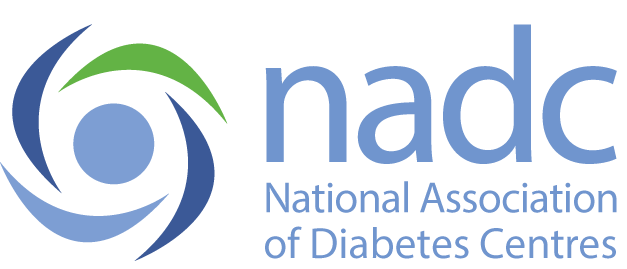BPDC 2022
SPEAKERS & PROGRAM
MEET OUR BPDC 2022 SPEAKERS

Justine Cain
Time: 9:40 – 10:00
Topic: Towards a world free of diabetes – the future of diabetes in Australia

Deanne Minniecon
Time: 10:00 – 10:20
Topic: Diabetes in indigenous communities, where are we at, where do we need to be & how do we get there

Dr Mervyn Kyi
Time: 10:50 – 11:05
Topic: A tool for the hospital, the Country or both?
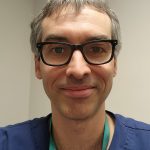
Dr Peter Donovan
Time: 11:05 – 11:20
Topic: Lessons from the Queensland Inpatient Diabetes Survey (QuiDS)

Dr Sue Mei Lau
Time: 11:20 – 11:35
Topic: Implementation of a Proactive, Virtual Glucose Management Service: the Prince of Wales Diabetes Dashboard Experience

Ella Zomer
Time: 1:20 – 1:35
Topic: Existing databases and registries for type 2 – what do we have nationally and internationally

Prof Maria Craig
Time: 1:35 – 1:50
Topic: ADDN update – what have we already learned? Where to now?

Dr Joel Lasschuit
Time: 1:50 – 2:05
Topic: Diabetes & foot ulceration – what the data tells us, what it doesn’t, and what do we do with it all
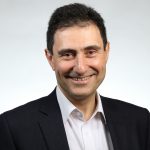
Prof Jonathan Shaw
Time: 2:05 – 2:20
Topic: Connecting the dots in data in diabetes databases – what do we need to do

Prof Anthony Russell
Time: 3:20 – 3:40
Topic: Has COVID-19 changed the model of diabetes care?
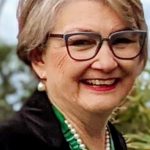
Dr Kaye Farrell
Time: 3:40 – 4:00
Topic: Models of Transition Care – are we delivering?

Dr Rahul Barmanray
Time: 4:20 – 4:30
Topic: Diabetes Digital Phenotyping to Improve Documentation of Diabetes in Hospital Inpatients

Lucia Marhava
Time: 4:30-4:40
Topic: Crossing the road: Improving service delivery for young adults living with diabetes transitioning into adult healthcare

Catherine Finneran
Time: 4:40-4:50
Topic: Development of Inpatient and Outpatient Metabolic Services and a Model of Care

Professor David O'Neal
Time: 15:25-15:50
Topic: Increasing Time in Range in adult populations

Dr Lori Laffel
Time: 15:50-16:15
Topic: Increasing Time in Range in paediatric populations
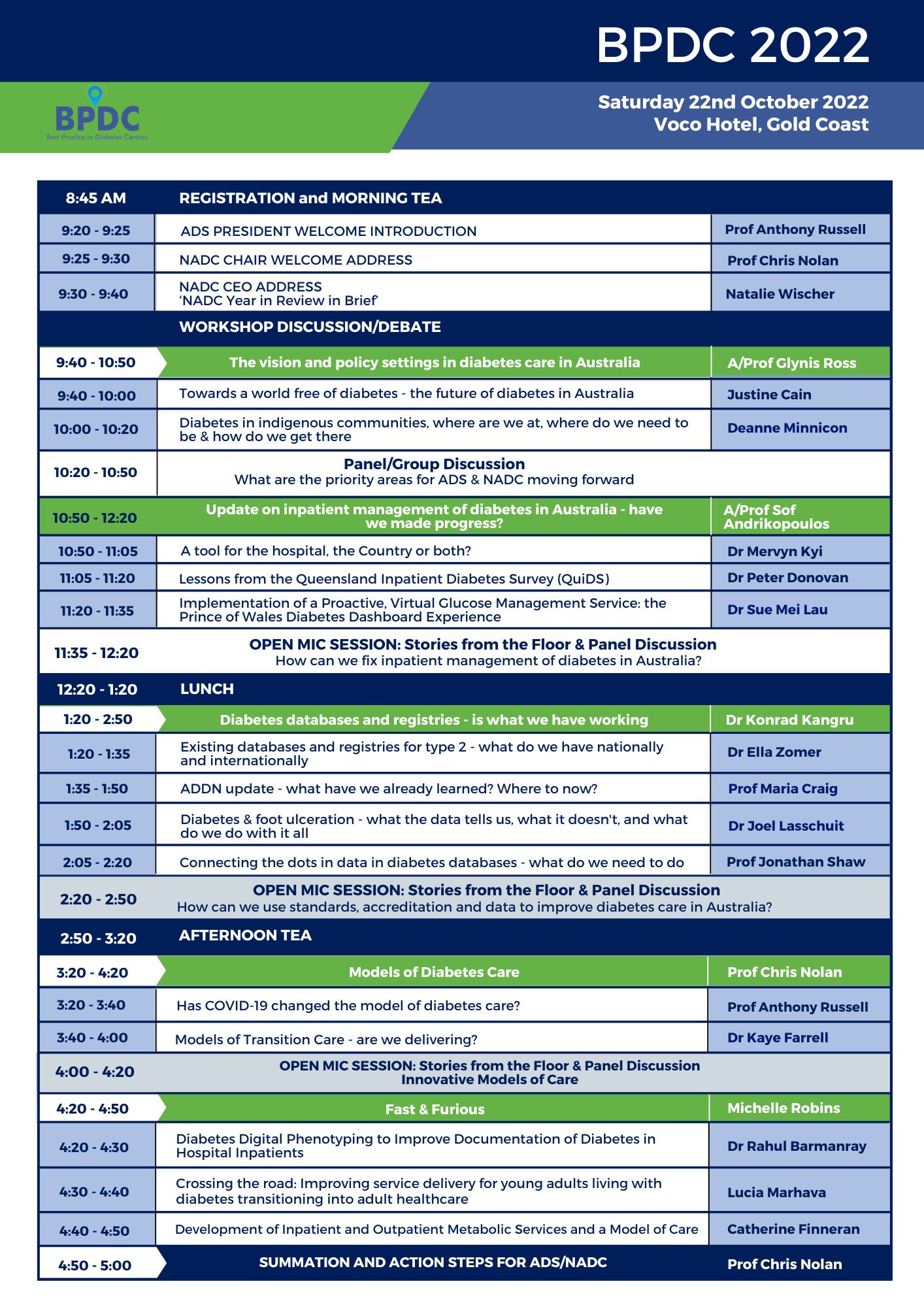
Click here to download the program.
Add Your Heading Text Here
Add Your Heading Text Here

